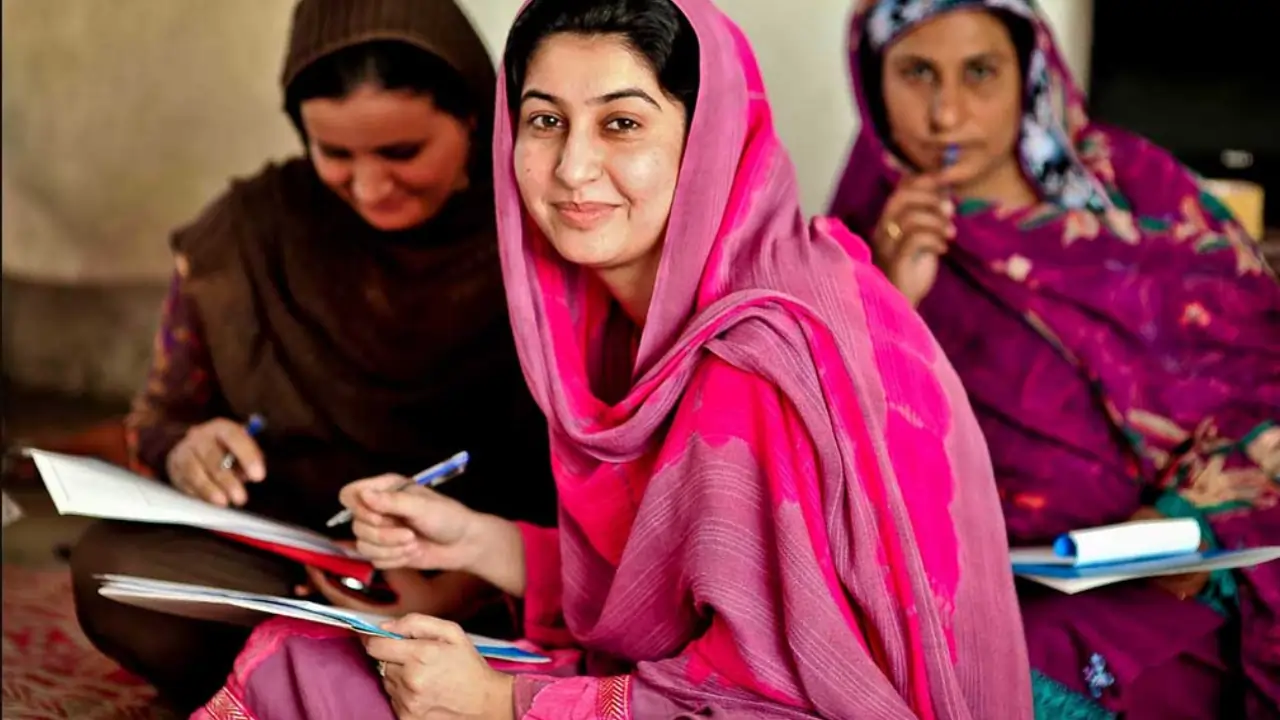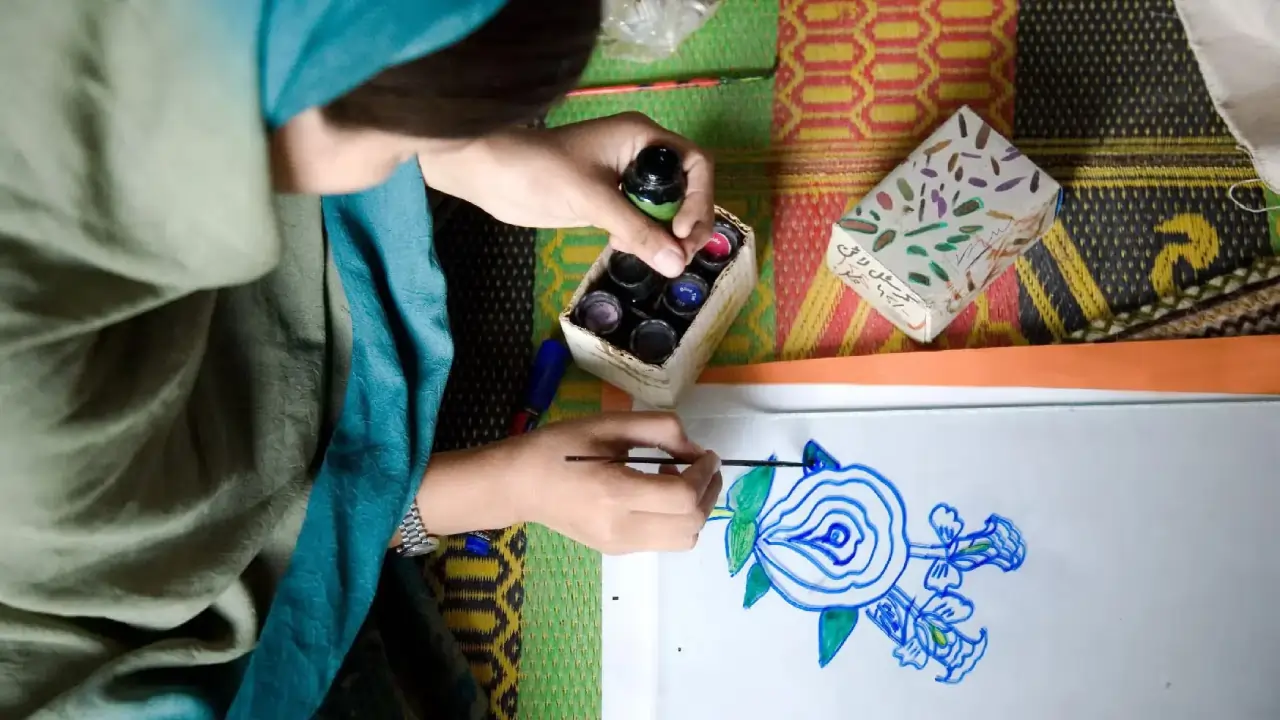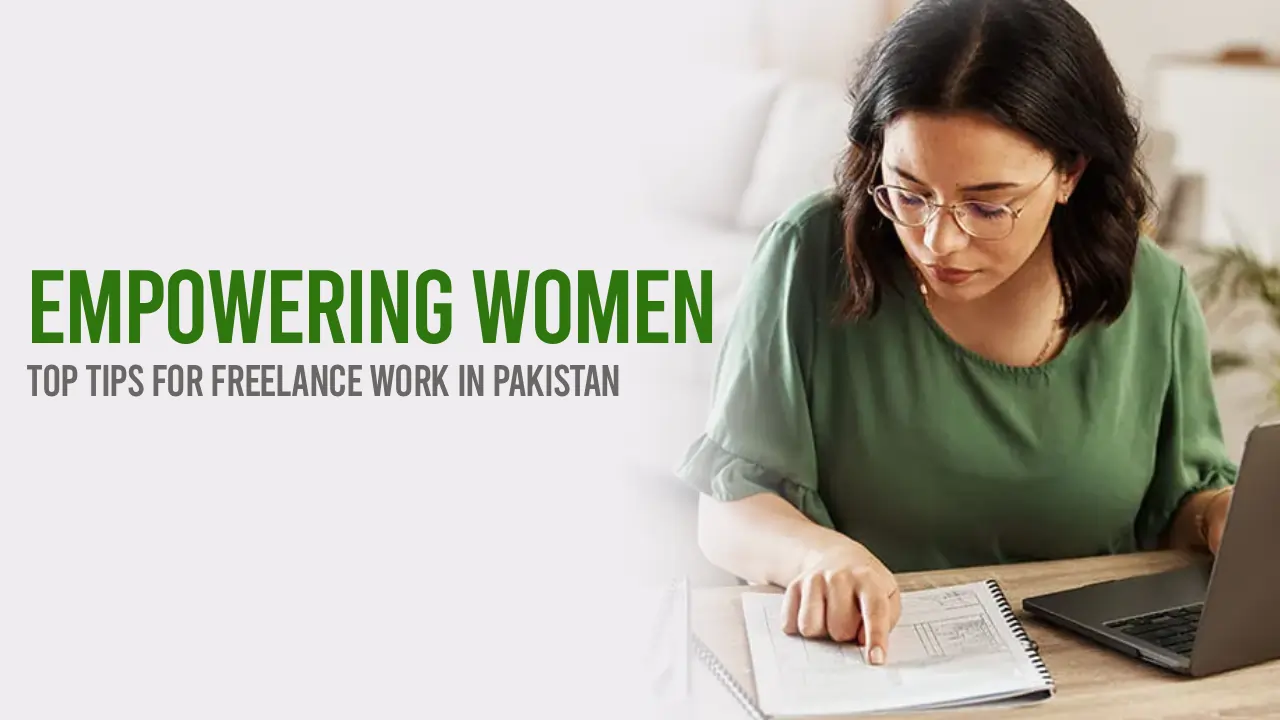- Accessorie
- Baby Care
- Beauty & Personal Care
- Clothings
- Concealers & Correctors
- Eyewear & Sunglasses
- Foot Care Tools
- Footwear
- Hair Accessories
- Hair Straighteners & Curlers
- Handbags
- Health & Personal Care
- Home & Kitchen
- Jewellery
- Makeup Accessories
- Makeup Essentials
- Mobile Accessories
- Pain Relief Products
- Skincare Tools
- Smartwatches & Wearables
- Sports & Events Equipment
- Uncategorized
- Wellness & Fitness
- Women’s Clothing
The Rise of Female Entrepreneurs in Pakistan
In this blog, you will find inspiring journey of female entrepreneurs in Pakistan. Explore their rise to success and the impact they are making in various industries.
Table of Contents
Introduction to Female Entrepreneurs in Pakistan
An emerging trend within the socio-economic fabric of Pakistan shows that there has been a steep upsurge in female entrepreneurship in the recent past. Traditionally, the involvement of women in Pakistan’s economy was not greatly diversified; the primary domains for employment included agriculture and cottage industries. Nonetheless, as society and the economy develop, women have been able to participate in entrepreneurship ventures.
Recent statistics show this growth The statistics are: trend. The survey done by Pakistan in the Global Entrepreneurship Monitor report reveals that the participation of women in business has increased by more than twofold in the last ten years. This is especially the case in important industries like information technology, clothing and textile manufacturing, educational institutions, and health care where women are delivering and have enhanced their worth in society.
The appearance of women in the Pakistani business landscape is not a novelty, and its manifestations and Gender and Industry represent not only individuals’ success stories but also trends characterizing the country’s economic and social progress. Women have established entrepreneurship not only by envisioning new opportunities for employment and eradicating poverty but in the overall development of the economy of a given country. Furthermore, it is important to note that Female Entrepreneurs tend to reinvest their income back into society leading to social betterment and improvement of standards in many ways possible.
It can therefore be seen that while female entrepreneurship in Pakistan as a measure has many benefits, it is more than an economic issue. It brings a significant change in cultural gender relations or gender roles slowly eradicating stereotype concepts and creating essence for a more liberal business structure. Women are particularly occupying leadership positions and, therefore, not only empower themselves but are also contributing towards the overall growth of societies and the nation.
Challenges Faced by Female Entrepreneurs in Pakistan
The advancement of women empowering themselves as owners of new businesses in Pakistan is a sign that depicts that women are also challenging conventional strategies. Nevertheless, these women who are daring and more aspiring are confronted with numerous hurdles that may hinder them. Some of these barriers include the cultures and traditions into which women are rationalized into staying in lower positions through gender roles and family responsibilities. Many women from Pakistani culture continue to be bound by traditional gender roles which dictate that their primary role is to be a wife and a mother, which goes hand in hand with household chores, making it conflicting for women eager to become businessmen.
The following are some of the challenges that affect the effective provision of IDSCs: Systemic factors also contribute to the exacerbation of these challenges. Female entrepreneurs in Pakistan were faced with challenges; one of which was restricted access to capital. Lender bias has been one of the pitfalls of traditional financial institutions, especially when it comes to the lending or disbursement of loans and capital for investments; where women are often denied capital and loans. They also claim that there are financial restrictions to entrepreneurship, for instance, inadequate capital to invest in their businesses while business networks are scarce because the business forums and the business events are male-dominated hence negative for women who need to build networks for their businesses.
However, the legal/policy-related barriers are not less important in this regard and are worth highlighting alongside the mentioned societal/systemic factors. While the situation has changed in comparison with the previous years, some laws and regulations still lack the necessary support for female entrepreneurs. For instance, regulatory burdens, lack of government support, and gender-sanctioned barriers and limitations keep women from starting or growing their businesses. In addition, it is also common that entrepreneurship legal rights for Female Entrepreneurs do not always guarantee basic legal rights against abuse and discrimination.
However, due to poor working conditions, poor security situation, discriminative culture, and other challenges faced by women of Pakistan that is why Pakistani women have proved to be very strong and full of tricks. Indeed, it is possible to recollect the experience of Khalida Brohi, who created the Sughar Foundation, whose goal is to lift rural women, and subsequently, their families out of poverty. Khalida being a woman experienced a lot of challenges in society and financial challenges to come up with a hub as a springboard for Female Entrepreneurs and to empower the community.
Another role model that can be named is Sheba Najmi, the founder of a non-governmental organization Code for Pakistan aimed at increasing the awareness of women in technology and innovation. This is a convincing call for setting up appropriate spaces that will encourage opportunities for women across the sectors and therefore open doors for female pioneers in the future.
Pursuing this line of argument, it is possible to discuss the stories of the struggling populations as the cases of some changes and improvements. While these above-mentioned benchmarks and barriers, the female entrepreneurs in Pakistan are struggling and making combative efforts in response to these challenges and noteworthy accomplishments of such Female Entrepreneurs are showing hope and path to the upcoming young-minded ladies.
Support Systems and Initiatives
The women of Pakistan have especially felt the change in the recent past in terms of running their businesses with the help of the different support tools that are available to them. These interventions involve governmental, non-governmental, and private sector measures targeting empowering women and creating a supportive climate for female enterprises.
The current government policies show significant encouragement in the provisioning of women-centered initiatives. The government of Pakistan in the recent past has established different schemes to empower women and improve female entrepreneurship such as the Women Empowerment Package. These are financial rewards in terms of money and credit, no lengthy procedures in the registration of these business entities, and tax exemptions for female entrepreneurs in Pakistan. In this regard, the role of the State Bank of Pakistan is crucial because it has introduced schemes of low-interest-bearing loans for female entrepreneurs in Pakistan, which implies that many young women have got a stimulus to start entrepreneurial activities.
Other institutions support female entrepreneurs in Pakistan and one of the biggest is non-profit organizations. The Women Chamber of Commerce and Industry (WCCI) and Pakistan femaleEntrepreneurs Network for Trade (WE-NET) are a few such associations that financially support their members and work on their behalf by advocating and providing operational training and opportunities to females. Typically, these organizations arrange training sessions and other methods of fellowshipping to make women marshal the requisite skill set that will enable them to perform well in the business world. It also provides chances for women to be linked with people of successful business personalities capable of mentoring them.
The role of the private sector in the advancement of females is also another factor as it embraces entrepreneurship. Some of the leading organizations and banks have extended the financing and grant programs solely for women entrepreneurs. For example, let’s take the case of the National Incubation Centre (NIC) which engages with different stakeholders to provide incubation services for seed capital and business support for women entrepreneurs.
Success Stories and Impact
Over the past decade, there have been encouraging trends of women embracing the culture of entrepreneurship in Pakistan and pushing frontiers in different fields of business. These inspirational tales of the people not only speak volumes about the achievements that they have achieved in their lives but also narrate the social change that they are bringing the society. These prominent women are role models for emerging female entrepreneurs in Pakistan and open doors to significant opportunities for women’s professional development.
A successful story that can be told regarding Pakistani women entrepreneurs is one of Roshaneh Zafar, the founder of Kashf Foundation. Kashf Foundation was established in 1996 to extend microfinancing services to needy and desperate women to come forward and start up their businesses and carry out their financial freedom. They have been able to give out over $800 Million in loans under Zafar’s Leadership thus empowering countless women. She was instrumental in not only empowering women through funding but also placing them in employment and helping to create employment opportunities and boost the community economy.
Jehan Ara is a dynamic personality in the technology sector of Pakistan, and she is serving as the president of the Pakistan Software Houses Association (P@SHA). She has established through her initiative, The Nest I/O, a home for the startup to grow and develop while helping the young dragon to find a mentor to guide them. They have enabled her to help raise the bar on innovation and to encourage more women to innovate towards venturing into technology. The fashion industry of Pakistan has also been graced by several strong and independent women who have played a pivotal role in the growth of the fashion industry of Pakistan, including the super-talented Maria B, the founder of Maria. B fashion brand which has become one of the most well-known fashion brands has withstood the test of time and is famous for catering fashionable clothes to its customers at competitive prices. The experience of Maria’B shows how much potential the fashion industry has for generating significant amounts of income and creating numerous job opportunities for its workers, since starting this business she has employed dozens of workers thus contributing a lot to the growth of the local economy.
One such prominent example is of an entrepreneur named Seema Aziz who has co-founded the textile company called Bareeze. Having the dream and passion for entrepreneurship, Aziz started his business pursuing the noble goal of reclaiming the lost glory of the textile industry of Pakistan. Today her hard work has paid off, Bareeze is an international brand and the quality work was set up and prevailed. Her business accomplishments have not only helped in establishing Pakistani textiles on the international level but also have proved very beneficial, offering employment to several craftsmen.
The influence of these women is not only confined to the personal enterprises they manage. They initiate development, stimulate the economy, and encourage initiatives to create ventures and new ideas. Every success story of a woman who has undeterredly climbed the ladder to start her own business in Pakistan is inspiring for the rest and the male counterparts also need to understand that women can do wonders in every field if given a chance.
Conclusion
In this blog, I have shared the details about a rising trend of women entrepreneurs in Pakistan and their ability to overcome the odds, introduce new ideas, and the social and economic changes they are bringing. Having highlighted the above issues, one can state that growing numbers of women are achieving success and starting their businesses in Pakistan, which not only ensures their economic equity but also has a positive impact on Pakistan’s economy. This change has been made possible by the support structures that include government structures and policies of other NGOs and the private sector section.
All in all, assessing the future of female entrepreneurs in Pakistan it can be concluded that these women have a favorable outlook. Today, women entrepreneurs have more opportunities than before, especially with modern means of production where they can market their products, communicate with targeted clients, or expand their businesses through social media technologies. A specific area of the issue is expected to be e-commerce, freedom that will help women to carry on their businesses online. Also, there is a growing trend in social entrepreneurship thus offering an opportunity for women in offering solutions to existing social problems while at the same time being able to develop sustainable business models.
Various stakeholders must persist in advocating, supporting, and nurturing such growths to further make a significant impact. This can be improved by the introduction of more friendly policies for the female gender in terms of matters about the financing of women-owned businesses by ensuring that they get credit facilities at a lower cost. This can be brought about by educational institutions and training facilities that can provide the needed courses or offer mentorship, focused on enhancing the entrepreneurial angle of women. Furthermore, the private sector can also add more tolerance in business organizations by encouraging the business organizations to diversify their executives, hiring facilitators and entrepreneurs that are women, or women entrepreneurs.
From this increase in job creation, the jobless rate in the society decreases and therefore it becomes essential for the society of Pakistan to support these female entrepreneurs. Therefore, appreciating, supporting, and implementing policies that gender, women’s education, and career advancement can go a long way in creating a gender-sensitive and effective economy. Thus, it is high time let all of us to join our hands together in supporting the cause of female entrepreneurs and make sure that they are growing up and doing well professionally.






